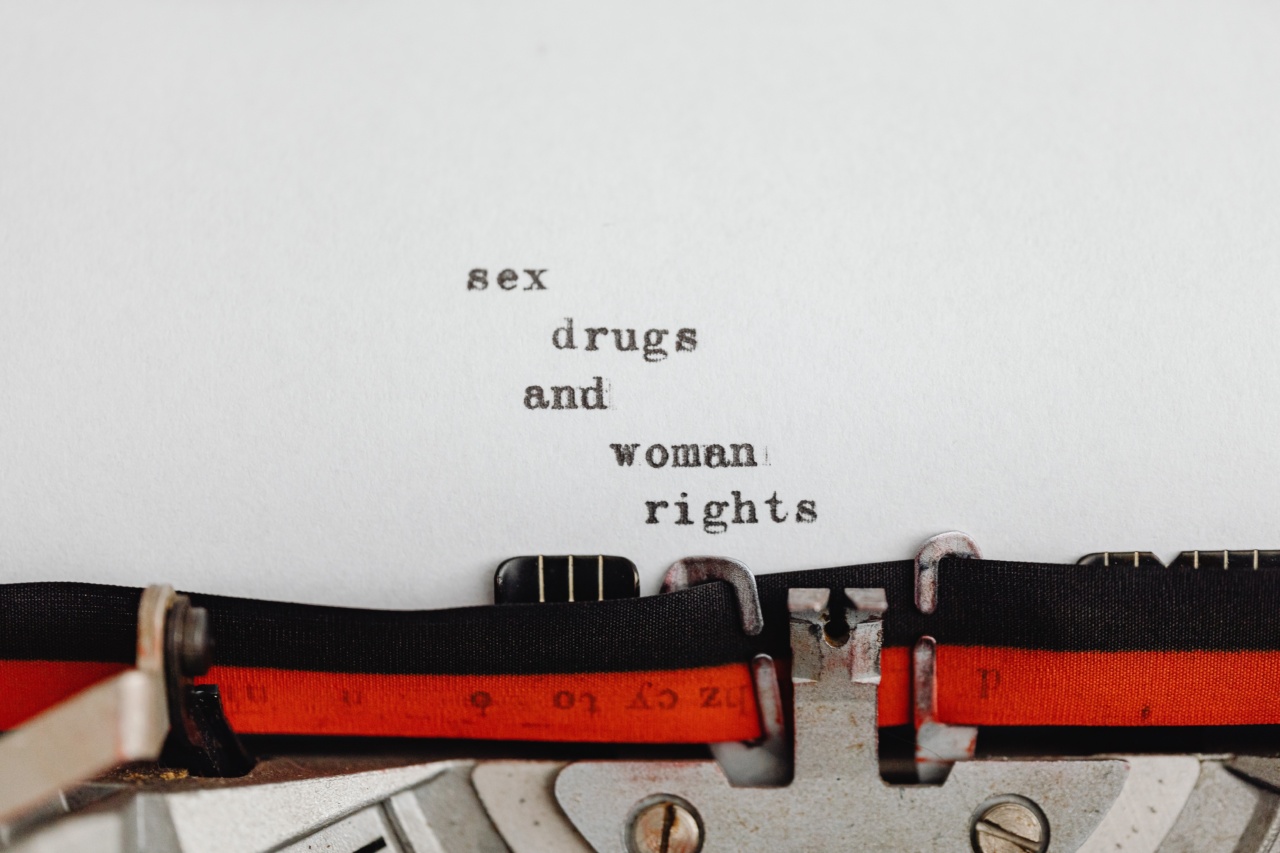The use and abuse of drugs have long been associated with a range of negative consequences for individuals. From health complications to impaired cognitive function, the consequences of drug use are widespread and far-reaching.
One area that often goes unnoticed or is not given enough attention is the impact drugs can have on our sex drive. Substance abuse can significantly disrupt the delicate balance of our sexual health, leading to devastating consequences for individuals and their relationships.
The Connection Between Drugs and Sex Drive
Before delving into the specific effects of different substances on our sex drive, it is important to understand the physiological and psychological connection between drugs and our sexual health.
1. Dopamine and Reward System:.
Many drugs, such as cocaine, heroin, and methamphetamine, act on the brain’s reward system by increasing dopamine levels. Dopamine is a neurotransmitter that plays a crucial role in pleasure, motivation, and reward.
The surge of dopamine caused by drug use can create intense feelings of euphoria. However, this artificial stimulation of the reward system can disrupt the natural process of sexual arousal and desire.
2. Hormonal Imbalances:.
Drug abuse can also lead to hormonal imbalances, affecting the production of testosterone, estrogen, and other hormones that are essential for maintaining a healthy sex drive. These imbalances can result in a decreased libido or sexual dysfunction.
3. Psychological Factors:.
Drug addiction often goes hand in hand with mental health issues such as depression, anxiety, and stress.
These psychological factors can significantly impact our sex drive by reducing our desire for sexual activity and impairing our ability to engage in intimate relationships.
The Devastating Effects of Specific Drugs
While drugs in general can have a detrimental impact on our sex drive, there are certain substances that are particularly notorious for their devastating effects on sexual health. Let’s explore some of them:.
1. Alcohol:
Alcohol is a depressant that can impair sexual function in both men and women. It may lead to difficulty achieving arousal and orgasm, decreased sexual performance, and diminished sexual pleasure.
Long-term alcohol abuse can also lead to erectile dysfunction and other sexual dysfunctions.
2. Marijuana:
Marijuana can have mixed effects on sexual health. While some users report increased sexual desire and pleasure, others experience a decrease in libido and difficulty achieving orgasm.
Additionally, heavy and chronic marijuana use has been linked to a decrease in testosterone levels, which can further disrupt sexual function.
3. Opioids:
Opioids, such as heroin and prescription painkillers, are notorious for their impact on sexual health. These substances can cause a decrease in testosterone levels, resulting in a loss of libido, erectile dysfunction, and infertility.
Opioid use also increases the risk of engaging in risky sexual behaviors, leading to the spread of sexually transmitted infections.
4. Stimulants:
Stimulant drugs like cocaine and methamphetamine can have both short-term and long-term effects on sexual health. In the short term, these substances can increase sexual desire and arousal.
However, chronic use can lead to sexual dysfunction, reproductive organ damage, and an increased risk of engaging in unprotected and risky sexual behaviors.
5. Ecstasy:
Commonly used in party and clubbing scenes, ecstasy is known for its ability to enhance feelings of empathy and intimacy. However, the drug can also have negative effects on sexual function.
Users may experience difficulty in achieving and maintaining an erection or orgasm. Long-term use can lead to chronic sexual dysfunction.
Recovery and Restoration of Sexual Health
The devastating impact of drugs on our sex drive should not be overlooked. However, it is important to note that recovery and restoration of sexual health are possible with proper treatment and support.
1. Seek Professional Help:.
If you are struggling with substance abuse and experiencing negative effects on your sex drive, it is crucial to seek professional help.
Therapists, counselors, and addiction specialists can provide guidance and support to address both the addiction and the associated sexual health issues.
2. Focus on Overall Health:.
Engaging in a healthy lifestyle can have a positive impact on your sexual health. Regular exercise, balanced nutrition, stress management, and adequate sleep can help restore hormonal balance and improve overall well-being, including sexual function.
3. Open Communication in Relationships:.
When dealing with the impact of drugs on your sex drive, it is essential to maintain open and honest communication in your relationships.
Supporting each other through the recovery process and seeking professional help together can strengthen your bond and improve intimacy.
4. Patience and Self-Compassion:.
Recovering from substance abuse and restoring sexual health takes time. It is important to be patient with yourself and practice self-compassion throughout the journey. Celebrate small victories and acknowledge that healing is a gradual process.
Conclusion
The devastating impact of drugs on our sex drive cannot be overstated. From disrupting the brain’s reward system to hormonal imbalances and psychological factors, substance abuse can lead to significant disruptions in our sexual health.
Understanding the specific effects of various substances allows individuals to make informed decisions and seek the necessary support and treatment. With professional help, a focus on overall health, open communication, and self-compassion, it is possible to recover and restore sexual health despite the challenges posed by drug abuse.






























